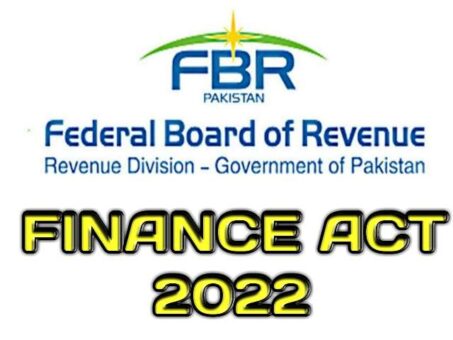ISLAMABAD: The Federal Board of Revenue (FBR) has implemented capital gain tax on disposal of immovable properties as amended through Finance Act, 2022.
The FBR issued Income Tax Circular No. 15 of 2022-2023 to explain the important amendments introduced through the Finance Act, 2022 to the Income Tax Ordinance, 2001.
READ MORE: FBR explains tax on deemed income from immovable property
The FBR said that earlier, the gain arising on the disposal of immovable property after the holding period of 4 years was exempt from tax.
Now the holding period concession will separately apply which for open plots is six years, for constructed property is four years and for flats is two years.
Further, whole amount of gain on disposal of immovable property will be taxable at graduated rates provided in Division VIII of Part I of First Schedule of the Ordinance given as under:
READ MORE: Super tax to apply for Tax Year 2022 and onwards: FBR
01. Where the holding period does not exceed one year: the tax rate for open plots shall be 15 per cent; for constructed property at 15 per cent; and for flats 15 per cent.
02. Where the holding period exceeds one year but does not exceed two years: the tax rate for open plots shall be 12.50 per cent; for constructed property at 10 per cent; and for flats at 7.5 per cent.
03. Where the holding period exceeds two years but does not exceed three years: the tax rate for open plots shall be 10 per cent; for constructed property at 7.5 per cent; and zero per cent for flats.
READ MORE: Pakistan enhances income tax rates for banks
04. Where the holding period exceeds three years but does not exceed four years: the tax rate for open plots shall be 7.5 per cent; for constructed property at 5 per cent; and zero per cent for flats.
05. Where the holding period exceeds four years but does not exceed five years: the tax rate for open plots shall be 5 per cent; zero per cent for constructed property; and zero per cent for flats.
06. Where the holding period exceeds five years but does not exceed six years: the tax rate for open plot shall be 2.5 per cent; zero per cent for constructed property; and zero per cent for flats.
07. Where the holding period exceeds six years: the tax rate shall be zero for open plots, constructed property and flats.
READ MORE: Declaring beneficial owner made mandatory for companies, AOPs
The concessional taxation regime for capital gains has been made applicable only to disposal of immovable properties situated in Pakistan.
The benefit of holding period and concessional rate of tax is not available in respect of capital gains arising on disposal of immoveable property situated outside Pakistan.
Furthermore, to streamline capital gains taxation regime, the concessions earlier available under sub-sections (3) and (3A) of section 37 in terms of reduction in capital gain by certain percentages on disposal of capital assets held for more than one year has been withdrawn.
READ MORE: Pakistan reintroduces capital value tax on motor vehicles
Sub-section (4A) of section 37 has been omitted.
Accordingly, non-recognition provision of section 79 will apply to determine the cost of acquisition on transfer of capital asset under the circumstances contained therein.




